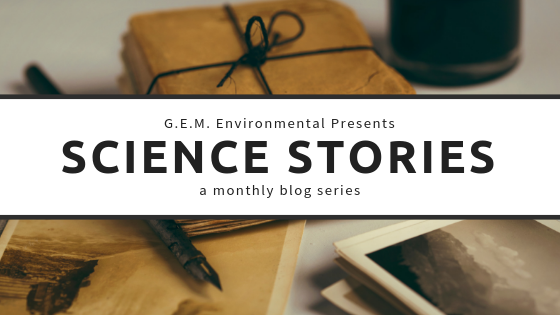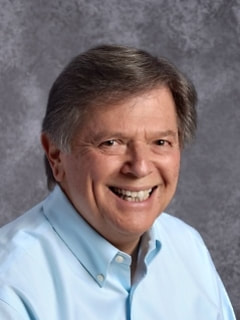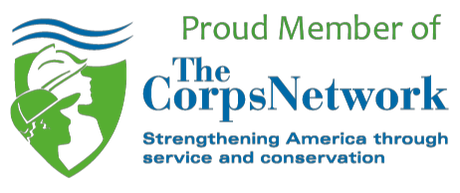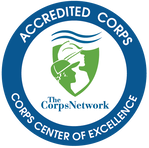|
G.E.M. Environmental is excited to share another new addition to our monthly blog series - Science Stories. Each month, we interview a STEM scholar, student, or community member and ask them things like why they believe the STEM fields are important, how they got started in their field, to what they would do if they hit the jackpot. We hope that our new blog series will inspire, introduce a variety of fields, and create new conversations. This month our guest is Al Muense. Al is a native New Yorker who received his B.A. and M.S. degrees from Long Island University. After a one-year internship he took the registry exam and became a registered Medical Technologist with the American Society of Clinical Pathologists, MT(ASCP). His career began as Clinical Chemistry Lab Manager in a 300-bed hospital while he was doing his graduate research. This was an exciting time in laboratory methodologies. New protocols were being developed and the clinical laboratory was quickly becoming automated. Seeing this, Al decided to take his career in a new direction and took a job as a Field Applications Chemist with Beckman Instruments, Inc., a leading manufacturer of analytical instrumentation for clinical, bioresearch, biotechnology, pharmaceutical and industrial research. His career path with Beckman also included management positions in sales and marketing. Upon retirement he felt a void and knew something was missing. He wondered how he could be involved in some way with science once again. He followed his passion and is currently teaching Chemistry and Integrated Science at Tri-City College Preparatory High School in Prescott, AZ. Why do you believe that the STEM fields are important? I may be biased, but I feel that STEM fields are perhaps the most significant contributors to improving the health and quality of life. If one were to stop for a moment and look around at all in their environment that is the product of the various STEM fields, and then try to imagine life with them they would be amazed. If one were to have a life-threatening health issue and was hospitalized, they would quickly realize that, if not for STEM sciences, their chances of survival would be greatly decreased. STEM fields also give us our biggest hope for the future. We live on a kind planet in a hostile universe. Relatively speaking, the air we breathe is a mere sliver covering the earth. The number of animal species we share this planet with is declining. There is a finite number of atoms of all the elements of the Periodic Table. However, our population is growing! Keeping everything in balance to ensure all forms of life in the future is going to fall on the success of future STEM discoveries and the subsequent education of the populace of any need for changes in social policy. How and why did you get involved in the STEM fields? I must thank my parents for getting involved in the STEM fields. They felt that science was the future and at an early age guided me in that direction. My favorite toys as a child were educational, though to me they were also fun. I had an Erector Set, a Chemistry Set, a Microscope Set, an Electrical Projects Set, and Electric Trains to name a few. My dad was equally interested in these subjects and was most helpful keeping my interest in them. One of my favorite subjects in graduate school was Biochemistry. This one subject seemed to tie all of the other life sciences together for me. Can you describe another aspect of your life or career that is influenced or enriched by the STEM fields that people would find surprising? When reminiscing about my career I can truly understand how STEM may have saved me from an untimely death and subsequently opened the door to many opportunities in my professional life. After graduating with my bachelor’s degree, I became eligible to be drafted into the Army to go and fight in Viet Nam. I did not know it at the time but when I appealed my draft status with the Draft Board, my internship in the hospital medical technology program was grounds for a continued deferment. Towards the end of my internship they went to a draft lottery system. I drew a very high number and was virtually guaranteed that I would not be drafted. I wasn’t drafted and the war ended. But STEM kept on giving. The field that I was in qualified me to apply for a grant for my graduate education. I received the grant and was able to earn my M.S. degree at no cost to me. What inspires you in your current position/role? I am currently teaching Chemistry and Integrated Science at Tri-City College Preparatory High School. What inspires me most is when I can get students excited about the subject and when they have those moments when everything that seemed so complex now comes together. My personal goal in this position is to get more students interested in STEM fields. We need them now and in the future. Have you ever participated in an internship? I did a one-year internship in a hospital laboratory. During this year I rotated through the different departments in Pathology, Microbiology, Chemistry, Hematology, Blood Band and Serology and Histology. This internship qualified me to sit for the Medical Technologist Exam given by the American Society of Clinical Pathologists. I took the registry exam and became a registered Medical Technologist, MT(ASCP). This designation would qualify me to work in any clinical laboratory in the country as well as providing me with expertise that companies in the industry desired in their recruitment. What work experiences have been the most educational for you, and why? The most educational work experience for me came when I left the hospital laboratory to work in corporate where all the new technology and applications were being developed. The various positions I held in corporate kept me on the forefront of emerging technologies as well as teaching me new management and interpersonal skills. What project(s) are you currently working on? Retirement is not what it is cracked up to be; at least not for me. I had to find something where I could use my STEM experience while working with others. Teaching was what I needed to do and fortunately I was able to have an opportunity to do so and I am currently teaching Chemistry and Integrated Science (Physical Science) at Tri-City College Preparatory High School. This summer it is back to school so I will be able to teach AP Biology next year. I will continue teaching at Tri-City Prep and if time permits maybe find a non-profit to get involved with. What is something that people might be surprised to learn about you? From what I have described about my career and love of science I want to emphasize one thing; I am not a “lab rat”. I’m my happiest and perhaps at my best when I am interacting socially. Just don’t get me started talking about science though, unless you have plenty of spare time! What is the funniest thing that has happened to you recently? This is the toughest question on the survey. I love to laugh and laugh often. I believe in the adage, “Laughter is the Best Medicine”. But for the life of me, nothing comes to mind. I guess the laugh is on me! You won $10 million in the lotto. What would you do? Wow, I’d better start playing the lotto! Seriously, when working in the hospital the pediatric unit had the most profound effect on me. To see children fighting diseases when their lives are just beginning sticks in my mind to this day. I would donate a good portion of winnings to research of my choosing. The future/survival of these children is dependent on scientific breakthroughs, STEM. We would like to thank Al Muense for taking the time to share his story with all of us. We feel it is important to promote STEM career paths and offer assistance and guidance to anyone interested in these fields. “It is through others that we develop into ourselves”.
|
Categories
All
Archives
June 2024
|
G.E.M. Environmental NFP
Geology - Engineering - Minerals - Environmental - Not for Profit
Geology - Engineering - Minerals - Environmental - Not for Profit
Community Partners
|
Programs
|
Get Involved
|
About
|
Follow Us
|
Sponsors & Donors
|
© COPYRIGHT 2017 - 2023. ALL RIGHTS RESERVED. G.E.M. Environmental NFP
GEM Environmental, GEM4STEM, GEM Corps, and Charity Rocks are all Registered Trademarks of G.E.M. Environmental NFP.
Any and all use of Trademarks or Copyrights must be authorized.
GEM Environmental, GEM4STEM, GEM Corps, and Charity Rocks are all Registered Trademarks of G.E.M. Environmental NFP.
Any and all use of Trademarks or Copyrights must be authorized.


 RSS Feed
RSS Feed


